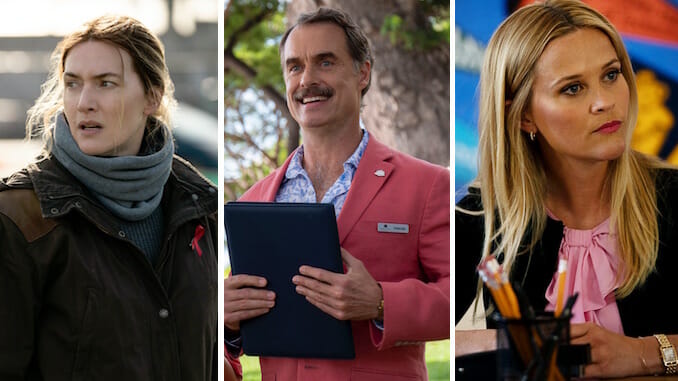Jump Ship While You Can: An Argument for Letting Limited Series End

TV might be riding along in a long-winded golden age, but that doesn’t mean that ever single thing put in front of us is worth watching. Not everything can be good, but that’s okay when there are a decent amount of good things out there. Even then, the real challenge comes when a good show gets a second season.
Sure, some shows are built for a traditional progression into a new part of their story by virtue of what network they were made for or what they were adapted from or based on. Greys Anatomy might seem tired after 18 seasons, but it’s written to keep going until Ellen Pompeo decides she doesn’t want to be Meredith Grey anymore. Minx’s first season might only be 8 episodes long, but the finale leaves off in a place that means that there has to be more to the story. A lot of shows, good or bad, are able to keep us watching because they know how to keep viewers invested at the end of one story arc, and remain entertained once a new one starts. It’s the most basic part of keeping a multi-season show alive, and even in the age of streaming, plenty of series have been able to keep people captivated. Orange Is the New Black, The Handmaid’s Tale, and the good seasons of Game of Thrones kept viewers coming back for more because they had more to give their audiences. The same cannot be said for a lot of their contemporaries.
When Big Little Lies premiered on HBO in 2017, the series was loved by critics and general audiences alike, and very quickly garnered a huge following. Though it was originally planned to be a limited series based on the Liane Moriarty book of the same name—and was submitted as such for multiple awards—HBO renewed the show for a second season. Despite the addition of Meryl Streep to the cast, Season 2 of Big Little Lies is generally regarded by fans as a letdown. It was better left as a one-off story that ended when the book it was adapted from did. Ironically, Big Little Lies suffered from a similar problem as the last seasons of Game of Thones. Despite there being wisps of source material to base the story on, both series suffered in quality when there wasn’t any solid story left to adapt. Big Little Lies Season 2 was based off of an unpublished novella written by Liane Moriarty specifically to give HBO more material to adapt, but adding on to a story that is finished isn’t easy. People can tell when the heart of a show is gone, and just because you have something that’s technically another canon addition to the story doesn’t mean that what you make from it will be good.
This isn’t only a flaw in adapted shows, either. Another of HBO’s giants, Euphoria’s second season didn’t receive the same reception that its first did. Unlike Big Little Lies, Euphoria was never advertised as a limited series, but it did manage to feel like one when the Season 1 finale closed out. For all intents and purposes, the series could have cut itself off there. We would have been left to wonder what really happened to Rue after she didn’t get on that train; ambiguous endings aren’t unheard of. The fact that the second season had more and more people wondering if the show was even good (outside of the talent of a select group of actors) is a sign enough that maybe Sam Levinson should have considered leaving things where they were. It’s not like there wasn’t more of a story to tell with Euphoria, it’s just that the story we ended up getting didn’t live up to the expectations that had been rightfully set.
-

-

-

-

-

-

-

-

-

-

-

-

-

-

-

-

-

-

-

-

-

-

-

-

-

-

-

-

-

-

-

-

-

-

-

-

-

-

-

-








































